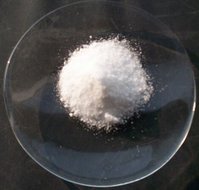WASHINGTON -- A federal judge has ruled that brand name drug manufacturer Schering-Plough and Upsher-Smith Laboratories, a maker of branded, over-the-counter and generic drugs did not violate antitrust laws when they agreed to settle a patent-infringement case in a deal that allowed the marketing of a generic version of Schering's K-Dur 20.
The ruling could have long-term implications for the marketing of other generics and the contentious relationships between branded and generic drug makers.
In his decision, released July 2, FTC Administrative Law Judge D. Michael Chapell ruled that a Federal Trade Commission suit against the two firms should be dismissed. In his ruling, the judge maintained that the settlement between the two firms did not run afoul of federal antitrust law.
The FTC's original suit sprang from the June 1997 settlement of a patent infringement case brought by Upsher against Schering. Upsher had sued Schering in late 1995, claiming that the branded drug company was illegally blocking an attempt by Upsher to bring its own A-B-rated generic version of K-Dur to market with an earlier patent infringement suit. K-Dur is used to treat gastrointestinal bleeding and ulcers.
Under terms of the settlement challenged by the FTC, Upsher brought its generic to market in September 2001, "cutting more than half of the remaining life off of Schering's patent," according to an Upsher statement.
Ian Troup, president and chief operating officer of Upsher-Smith, expressed gratification at the outcome. "After a lengthy trial with dozens of witnesses and thousands of exhibits, the court held that Upsher-Smith acted in an appropriate and lawful manner in settling a patent-infringement lawsuit brought against us by Schering-Plough," he said. "We trust that the FTC will accept this ruling and allow this pro tracted case to come to a close.
"We've known all along that our settlement with Schering was pro-competitive," he added. "It accelerated generic competition by cutting five years off of the life of Schering's patent."
COPYRIGHT 2002 Reproduced with permission of the copyright holder. Further reproduction or distribution is prohibited without permission.
COPYRIGHT 2002 Gale Group



